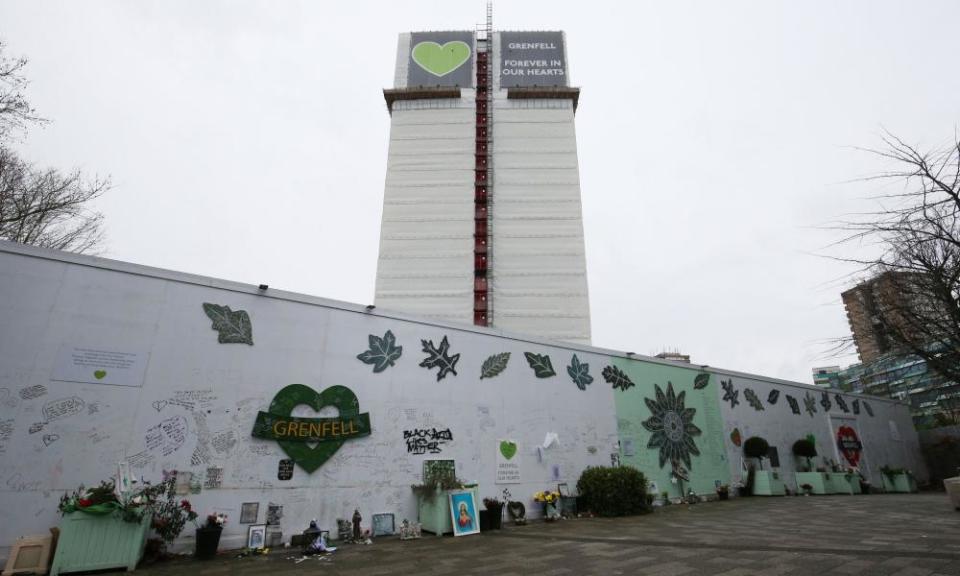New watchdog tells England's high-rise builders to 'get your act together'

High-rise builders with poor fire safety records will be targeted by a new watchdog with the power to mount civil and criminal prosecutions, its chief inspector has said in his first interview.
Peter Baker said he was “determined that the new building safety regime prevents anything like the Grenfell tragedy from ever happening again” and he hoped to avoid any repeat of the building safety crisis that has landed hundreds of thousands of leaseholders with huge bills to fix fire safety faults.
He said the regulator would deter builders from “dodging and weaving” safety responsibilities, and he warned firms to “pull their bootstraps up” or risk sanctions.
Almost four years after the Grenfell fire that killed 72 people, Baker is leading a new system of regulation of buildings more than 18 metres or six storeys tall, based on health and safety practices used in high-risk industries such as oil and chemicals. It will give builders, developers and owners “risk ownership” for overall safety rather than the current system of relying on signoff by a building inspector.
It follows a post-Grenfell review of building safety by Dame Judith Hackitt. The Health and Safety Executive will hire 700 staff including fire experts and engineers to vet buildings.
The new national watchdog for England will have to check projects at three key stages: planning approval, start of construction and handover. If it is not satisfied, it can stop works. The system takes control out of the hands of councils. The Grenfell Tower inquiry heard that the local council’s building inspector was overwhelmed with work after cuts, with 130 jobs on at the time of the high-rise project.
The public inquiry has also heard how architects, builders and clients engaged in “a merry-go-round of buck-passing” on safety that allowed highly combustible materials to be used and mistakes to be made in construction.
Baker said the new system would “make it much more difficult for organisations to duck and dive, dodge and weave and use contractual arrangements to pass the buck.”
A parallel inspectorate for construction products is also being set up. There have been revelations at the inquiry that manufacturers gamed testing and certification systems to obtain approvals for dangerous materials.
“A measure of our success will be the absence of these sorts of disasters,” Baker said. “Industry needs to get on with this and anticipate what’s coming. We are not shy of taking enforcement action and we will do that from day one if necessary.”
He said the public had “lost complete confidence in the construction industry’s ability to build safe and good-quality buildings”, and he told the industry: “You need to get your act together.”
He said his intent was to “give residents confidence this new regulatory regime is going to prevent this sort of issue arising again”.

 Yahoo Finance
Yahoo Finance 